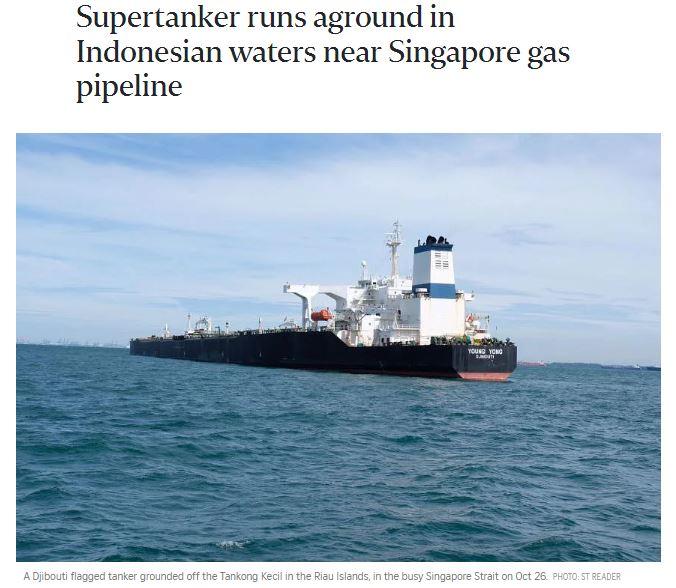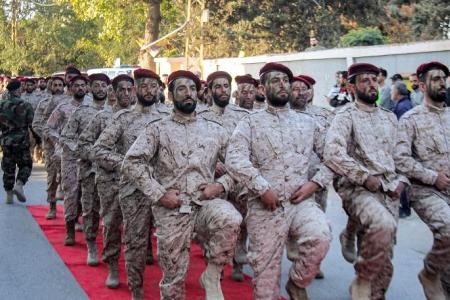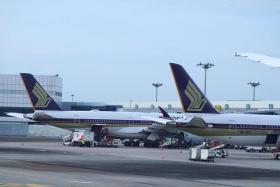US sanctions owner of supertanker grounded near Singapore over links to Iran-backed Hizbollah
A supertanker that ran aground in Indonesian waters off Singapore has been sanctioned by the United States Treasury for being linked to an international oil smuggling network that facilitated oil trades to fund Hizbollah and the Islamic Revolutionary Guard Corps-Qods Force (IRGC-QF) operating in the Middle East.
In a media statement, US Under Secretary of the Treasury for Terrorism and Financial Intelligence Brian E. Nelson said: “The individuals running this illicit network use a web of shell companies and fraudulent tactics including document falsification to obfuscate the origins of Iranian oil, sell it on the international market, and evade sanctions.”
He added: “Market participants should be vigilant of Hizbollah and the IRGC-QF’s attempts to generate revenue from oil smuggling to enable their terrorist activities around the world.”
The supertanker Young Yong, which ran aground near a critical gas pipeline that supplies gas to Singapore,was linked to Ukrainian national Viktor Sergiyovich Artemov, who the US Treasury said was responsible for overseeing the vast network of cover companies and shipping services used to receive, conceal and trade the sanctioned oil.
The US Treasury said Mr Artemov used his companies to buy and sell oil tankers that were then used to transport blended Iranian oil on behalf of the oil smuggling network.
It added: “The network used storage units in the Port of Sharjah in the United Arab Emirates (UAE), and blended products of Indian origin with Iranian oil to obfuscate the Iranian origin. The companies then modified or created counterfeit certificates of origin and quality for the blended oil, which was then transferred for sale abroad.”
The US Treasury noted that Mr Artemov also planned oil sales to Asia-based buyers as of late 2021 with key Hizbollah financier Muhammad Ibrahim Bazzi, who had been sanctioned previously. Another associate, Mohamed El Zein, was listed as a member of Hizbollah.
The US Treasury added that Mr Artemov leverages all of these companies to transfer and hide the ownership of vessels involved in the illicit oil smuggling network.
It said Mr Artemov and his network had registered companies in the Marshall Islands, Mauritius and Singapore in an effort to obscure their involvement in the sale and transportation of Iranian oil.
These companies include Singapore-based Centrum Maritime whose registered address is listed as International Plaza in Tanjong Pagar.
The US Treasury said the company, whose shares are being held by another individual in a trust for Mr Artemov, was involved in the sale and purchase of oil tankers worth around US$30 million (S$42 million) to transport oil for the smuggling network. Mr Artemov was linked in the authorisation of these transactions.
The Djibouti-flagged Young Yong is owned by a Marshall Island-registered company called Technology Bright, which the US Treasury said aided Mr Artemov in his covert oil trades, resulting in the tanker being sanctioned.
It noted that the captain of the supertanker had falsified the ship’s location data and updated Mr Artemov and his associates at his trading company Ava Petroleum on the ship’s status and its loading of about 1.8 million barrels of oil.

On Tuesday, the Maritime and Port Authority of Singapore (MPA) said the tanker ran aground off Takong Kecil in the Riau Islands in the Singapore Strait around 8.20pm on Oct 26. The grounded tanker is not impeding traffic in either the Singapore or Malacca Strait.
MPA had also said that before the incident, its Port Operations Control Centre had sent warnings through its Vessel Traffic Information System to the tanker on the potential risk of grounding due to shallow waters.
In response to queries, the Energy Market Authority (EMA) said on Thursday that the grounded vessel is in the vicinity of subsea pipelines that carry natural gas for power generation and industrial use. It added: “These pipelines are rock-armoured for additional protection. Thus far, gas supply and pressure from these pipelines remain normal.”
Singapore depends on imported gas for about 95 per cent of its electricity needs and is vulnerable to any shifts in global supply-demand fundamentals. The bulk of this supply comes in via pipelines from Indonesia.
On Nov 1, The Straits Times reported that the Nipa anchorage where the tanker was headed to is primarily used for floating storage and ship-to-ship transfer operations. It is also commonly used by companies trading in sanctioned oil from Venezuela and Iran.
Mr Roslan Khasawneh, a senior analyst at data analytics firm Vortexa, said the tanker had loaded about 260,000 tonnes of crude on Oct 26, based on assessments by the firm.
“It’s the worst-kept secret that this area is a hot bed for surreptitious ship-to-ship transfers of oil at sea that originated from places like Venezuela and Iran with the aim of obscuring the true origin of those cargoes,” he said.
According to data from the firm, the tanker had frequently called at China’s Shandong port, a key terminal for oil imports. China is the world’s top crude importer.
Get The New Paper on your phone with the free TNP app. Download from the Apple App Store or Google Play Store now


